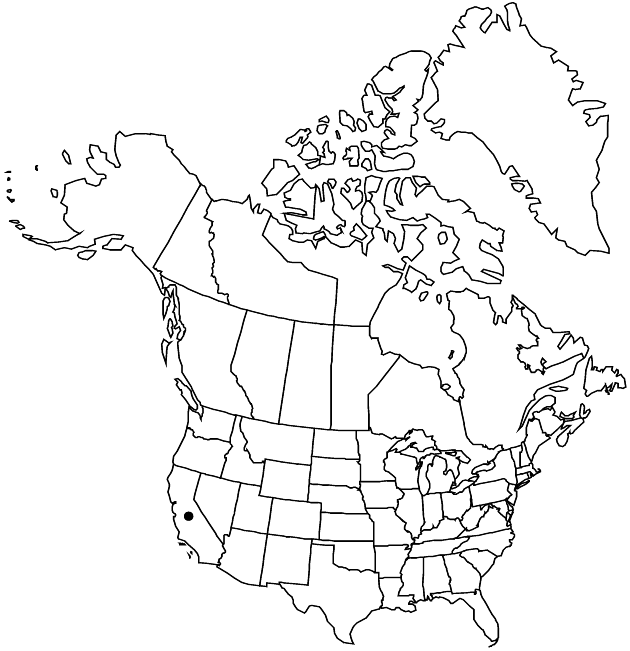Chaenactis glabriuscula var. lanosa
Univ. Calif. Publ. Bot. 3: 192. 1907.
Plants 8–15(–35) cm; proximal indument whitish, ± densely lanuginose. Stems mostly 1–12, decumbent to erect; branches none or strictly proximal. Leaves ± basal (persistent), 2–10 cm; largest blades ± plane or terete, scarcely succulent, 0–1-pinnately lobed; lobes 1–2(–5) pairs, remote, ± plane to terete. Heads 1(–3) per stem. Peduncles 8–20(–30) cm. Involucres ± hemispheric to obconic. Phyllaries: longest 6–8 × 1–2 mm; outer ± densely lanuginose in fruit. Florets: inner corollas 5–6.5 mm. Cypselae 4–6 mm; pappi of 4 scales in 1 series, longest scales mostly 4–6 mm, lengths 0.8–0.9(–1) times corollas. 2n = 12.
Phenology: Flowering Mar–June.
Habitat: Deep loose sand (typical forms, intermediate forms also in habitats of other vars.), openings in chaparral
Elevation: 10–700(–1400) m
Discussion
Variety lanosa is known mainly from the Coast Ranges of central California. Most (but not all) specimens from farther south (Pacific coast and Santa Rosa Island) and southeast (Transverse Ranges to Sonoran Desert edges) are intermediate with vars. megacephala or glabriuscula; these are sometimes recognized as var. denudata. Northward, intermediates with var. heterocarpha are known.
Selected References
None.
